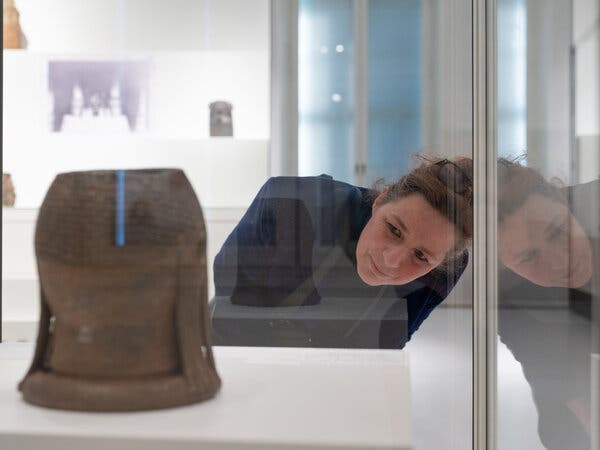Western museums are major tourist attractions, drawing travelers from around the world. But what responsibility do we bear as spectators for patronizing institutions that display what critics say are stolen works?
On a recent morning, visitors trickled into the Africa wing of the Humboldt Forum in Berlin, a massive museum that opened in 2021 in a neo-Baroque reconstruction of the city’s former Royal Palace. The setup was familiar: Artifacts were enclosed behind glass and mounted onto white walls — an “ethnological display” of priceless artworks from a far-off land.
But this exhibition was different. Dozens of Benin Bronzes, intricate sculptures and plaques in metal that date back as far as the 13th century, were on display in Berlin for what may be the last time. Since July 2021, the artifacts no longer belong to Germany. They are part of a trove the country has begun to repatriate to Nigeria, beginning in December with the return of 20 bronzes. The exhibition tells not just the story of the objects, but also of their theft in 1897, when British forces sacked Benin City, looting the royal palace of the Kingdom of Benin in what is now southwest Nigeria.
Diagrams explain how the bronzes were acquired from European traders, while photos show British soldiers striking triumphant poses atop piles of loot. In one room, I joined tourists who watched videos depicting scholars, artists, German and Nigerian curators, and representatives of the royal family in Benin City discussing the significance of restitution.
Read More

